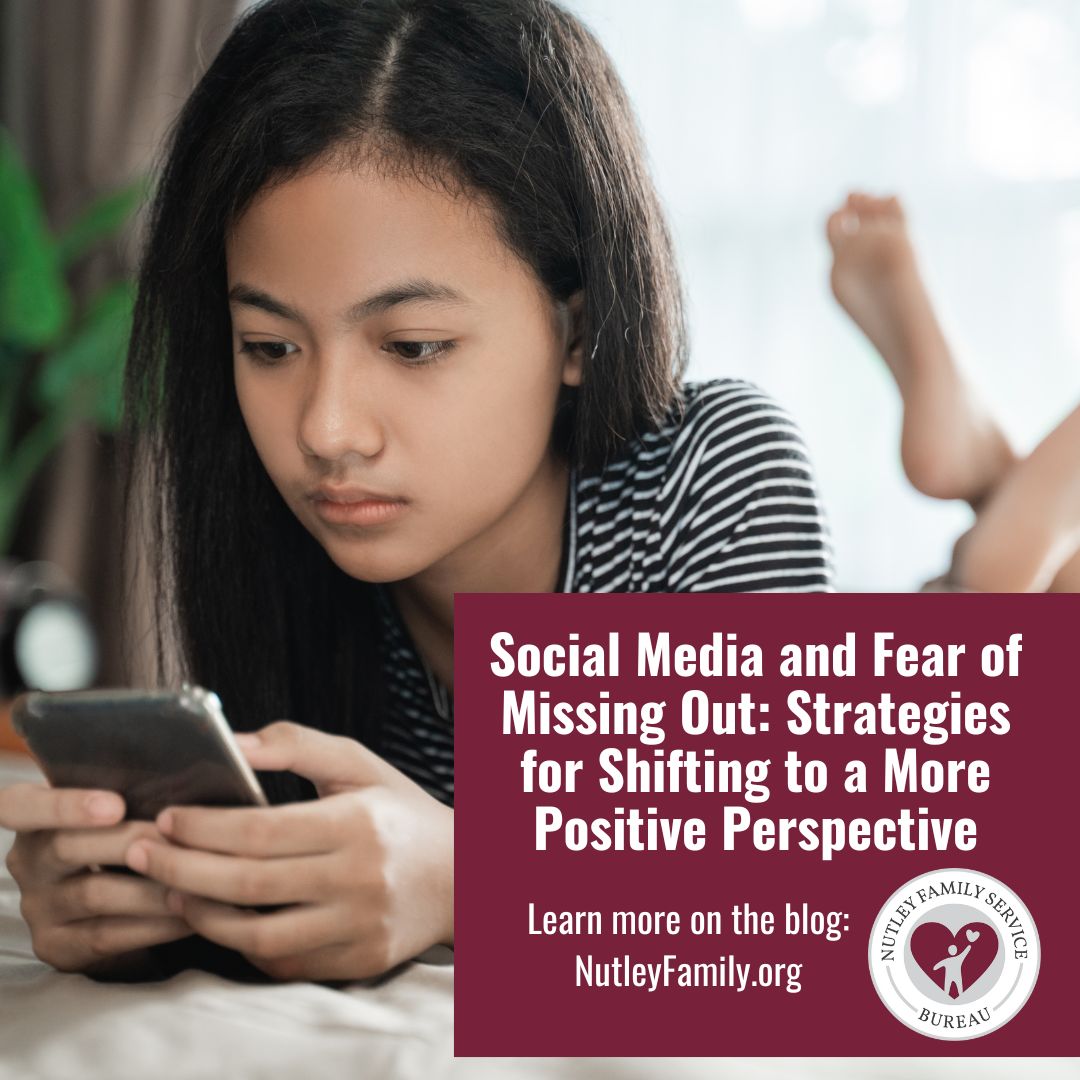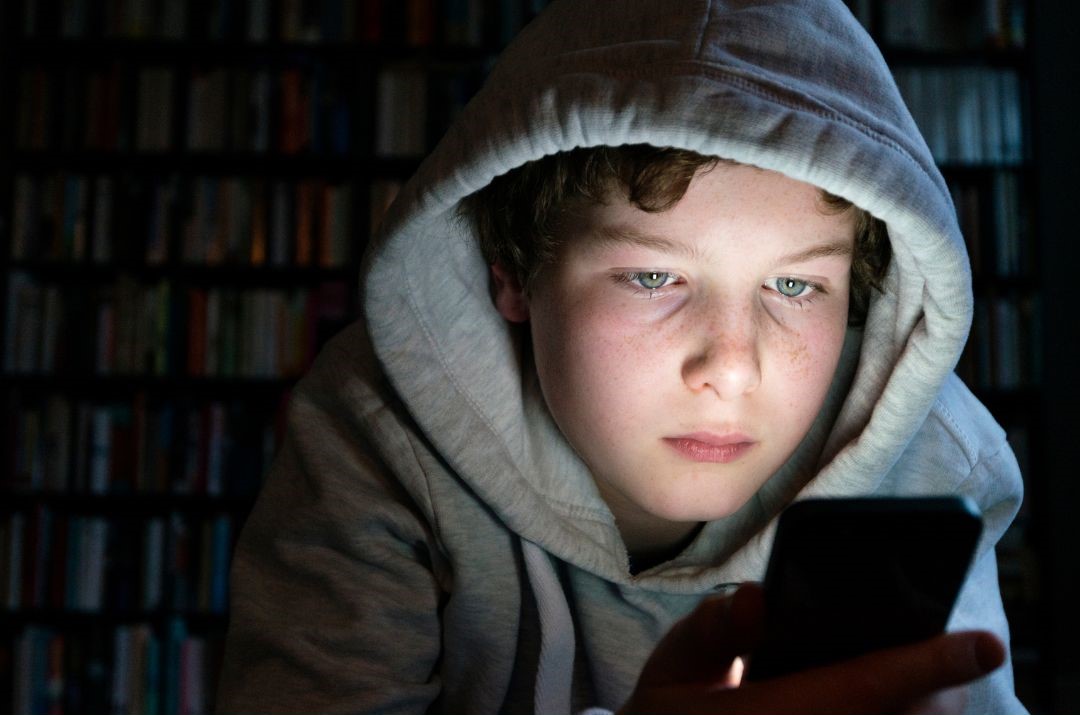-
Social Media and Fear of Missing Out: Strategies for Shifting to a More Positive Perspective
- Posted on July 31, 2023
- by admin
- in All Articles, Mental Health, NFSB Blog
- Comments Off on Social Media and Fear of Missing Out: Strategies for Shifting to a More Positive Perspective

Your social media feed is like a highlight reel of other people’s lives. You see pictures from vacations, graduations, barbecues, and other events. You hear about accomplishments, job promotions, and big news from friends, family, and co-workers.
For many people, from teens to seniors, scrolling through social media feeds can cause them to compare their lives to others, which can affect their self-esteem and make them feel depressed, sad, isolated, and inferior.
“It’s always an upwards comparison,” said Staela Keegan, MSW, LCSW, LCADC, Senior Clinical Supervisor at Nutley Family Service Bureau (NFSB). “It’s not real life. You’re only seeing the highlights of people’s lives and comparing it to a regular day in your own life, which can make you feel like yours isn’t good enough. You might see pictures from a party and wonder why you weren’t invited. That’s when you begin to experience the fear of missing out.”
These feelings can grow because social media can quickly turn into a continuous loop of scrolling and following the lives of others to see what they’re doing. People can become even more withdrawn when they feel as if their life doesn’t measure up with the highlights they see on social media.

“Through therapy, we can work on strategies and coping skills to help clients view their lives more realistically and positively,” Staela said. “You’re only seeing what people want you to see on social media, so it’s important to differentiate between highlights and everyday life, and why a comparison between the two isn’t based in reality.”
Instead of comparing yourself to what you see on social media and feeling like you’re missing out on something, try to practice gratitude. What do you have in your life that makes you feel grateful?
“One thing I do myself when I get up in the morning, before my thoughts for the rest of the day begin to take over, is think of something I’m grateful for that day,” Staela said. “It could be something as simple as a sunny day, a comfortable pillow, or a good friend. When you reach and stay in a state of gratitude, you develop a more positive outlook, and depression and anxiety tend to go down.”
Of course, limiting time spent on social media allows you to spend more time living and improving your life in a productive way instead of comparing yourself to others. In addition to affecting your mental health, social media can keep you stuck in a state of procrastination. Turn off social media alerts so your phone isn’t constantly chirping with every new post, comment, or “like.”
Plan to see family and friends in person if possible, or simply communicate by phone or text instead of competing with the distractions of social media. Think about activities you’ve always wanted to explore. Plan an outing with people you know, or join a group online and meet new people.
“We always talk to clients in counseling about staying in the moment,” Staela said. “Instead of dwelling on an unrealistic comparison of past events or anxiously projecting the future, focus on right now. What are you grateful for? What makes you happy? What can you do to be even happier?”
If you or someone you know is spending a lot of time on social media and experiencing feelings of sadness, depression, or anxiety as a result of what they see in their feed, consider scheduling an appointment at the Mental Health Center at NFSB by calling 973-667-1884. Immediate appointments are available and we’ll always respect your privacy.
If you enjoyed this article please consider sharing it!
Archives
- July 2024
- June 2024
- May 2024
- April 2024
- March 2024
- February 2024
- January 2024
- December 2023
- November 2023
- September 2023
- August 2023
- July 2023
- June 2023
- May 2023
- April 2023
- March 2023
- February 2023
- January 2023
- December 2022
- November 2022
- October 2022
- September 2022
- August 2022
- July 2022
- June 2022
- May 2022
- April 2022
- March 2022
- February 2022
- January 2022
- December 2021
- November 2021
- October 2021
- September 2021
- August 2021
- July 2021
- June 2021
- May 2021
- April 2021
- March 2021
- January 2021
- December 2020
- November 2020
- October 2020
- September 2020
- August 2020
- July 2020
- June 2020
- May 2020
- March 2020
- January 2020
- November 2019

















